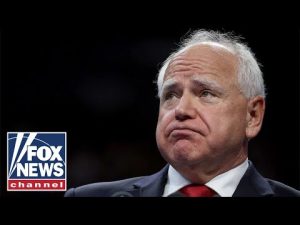In recent discussions surrounding Donald Trump’s potential appointment of Cash Patel as FBI director, a distinct tension has emerged between current and former law enforcement officials. One of the most vocal critics of this nomination is former FBI deputy director Andrew McCabe, who has expressed strong concerns about what Patel’s leadership could mean for the bureau’s integrity. McCabe’s alarm bells might be enough to raise eyebrows, but a closer look reveals that the real story lies in the ongoing politicization of our nation’s key institutions.
McCabe’s apprehensions stem from the fear that Patel, should he assume the role of FBI director, would lead not just a disruption but potentially a dismantling of the agency itself. This fear centers on the perception that Patel would transform the FBI into a mere tool of the presidential agenda, eroding the independence that is crucial for the agency’s functionality. However, one must consider that the very notion of an “independent” FBI has come under scrutiny in recent years, especially during McCabe’s tenure, which was marked by allegations of bias and misconduct.
To fully understand the implications of McCabe’s warning, it’s essential to revisit his own history at the FBI. His termination in 2018 was not due to malice from political adversaries, but rather because of serious allegations concerning his conduct, including leaking information. This makes his criticisms of Trump’s potential changes to the FBI rather ironic. If anything, his actions exemplified the kind of politicization he now decries. It raises an important question: who exactly is in the position to lecture about the integrity of our institutions when they themselves may have played a hand in muddling their credibility?
Moreover, Trump’s possible nomination of Patel isn’t just about the individual; it represents a broader narrative about accountability and authority in federal agencies. For many Americans, the notion that any political figure could wield such significant influence over a law enforcement agency is alarming. However, supporters argue that this change could restore necessary oversight and eliminate perceived biases that have plagued the FBI in recent years. At the heart of this debate is a need for reform that prioritizes transparency and justice over bureaucratic inertia.
In conclusion, while McCabe’s concerns about Patel’s appointment illustrate a divide in perspectives about the FBI, it also highlights ongoing conflicts regarding the role of politics in law enforcement. As debates rage on about what this potential change might bring, one thing remains clear: the conversation about the FBI’s direction signifies a larger struggle for the soul and effectiveness of federal institutions. Ironically, those who once occupied the highest ranks of these agencies now seem more focused on keeping political power than upholding the values of justice and accountability, leaving Americans to wonder if true reform is ever possible.







